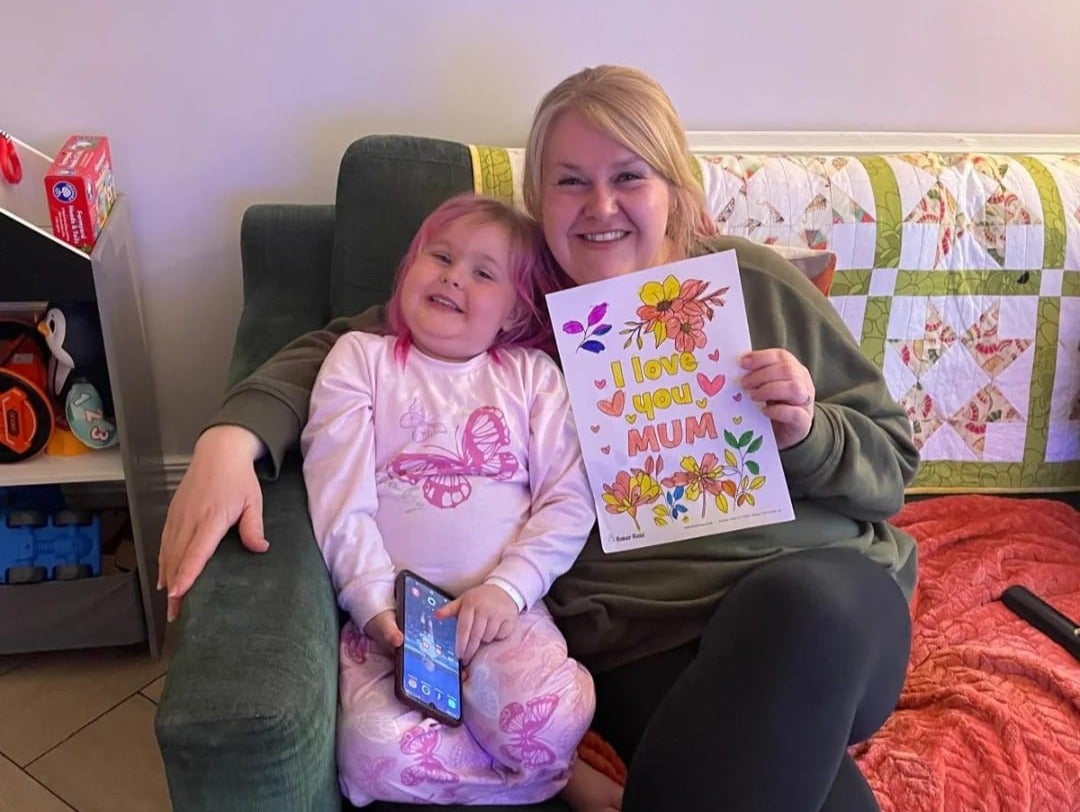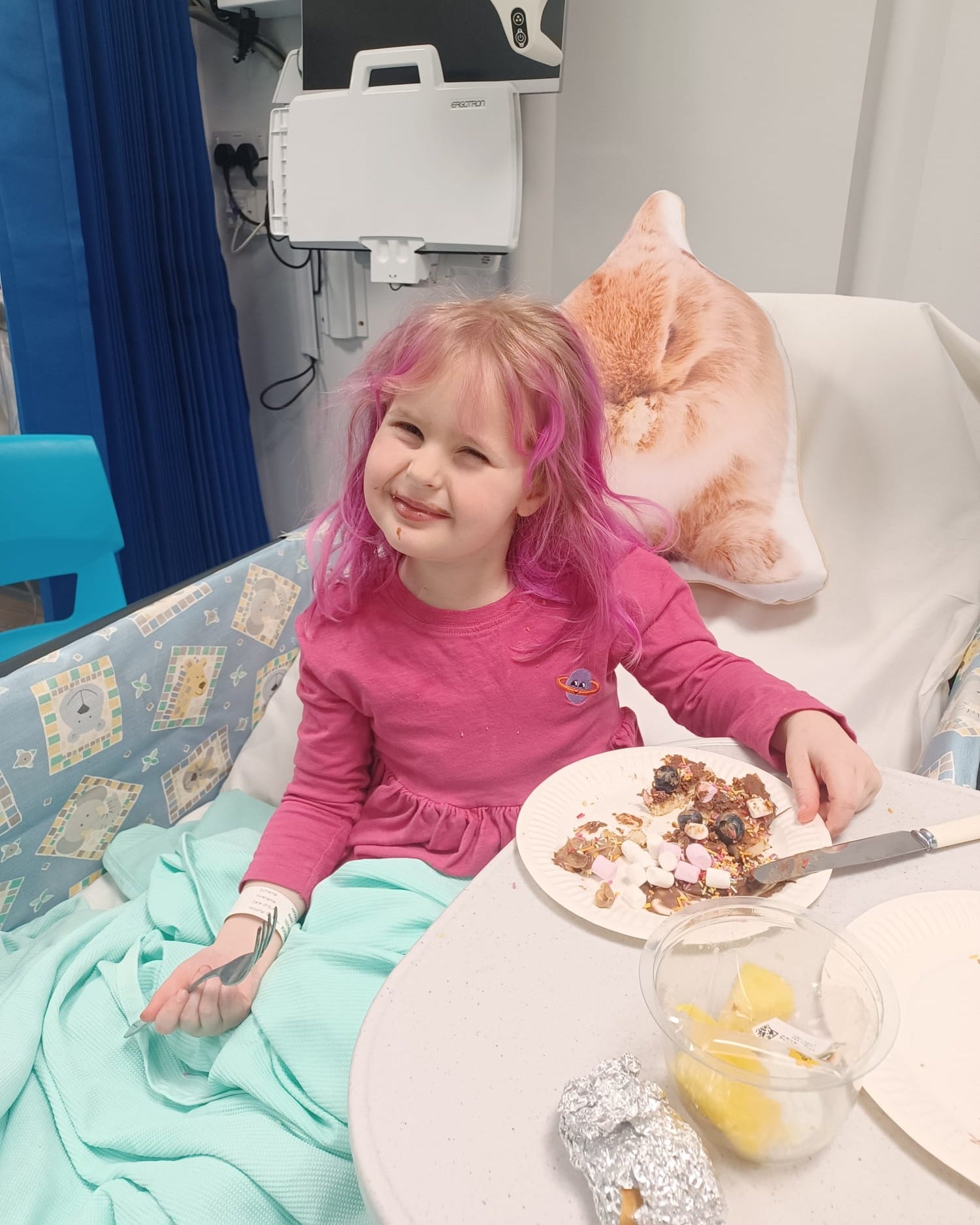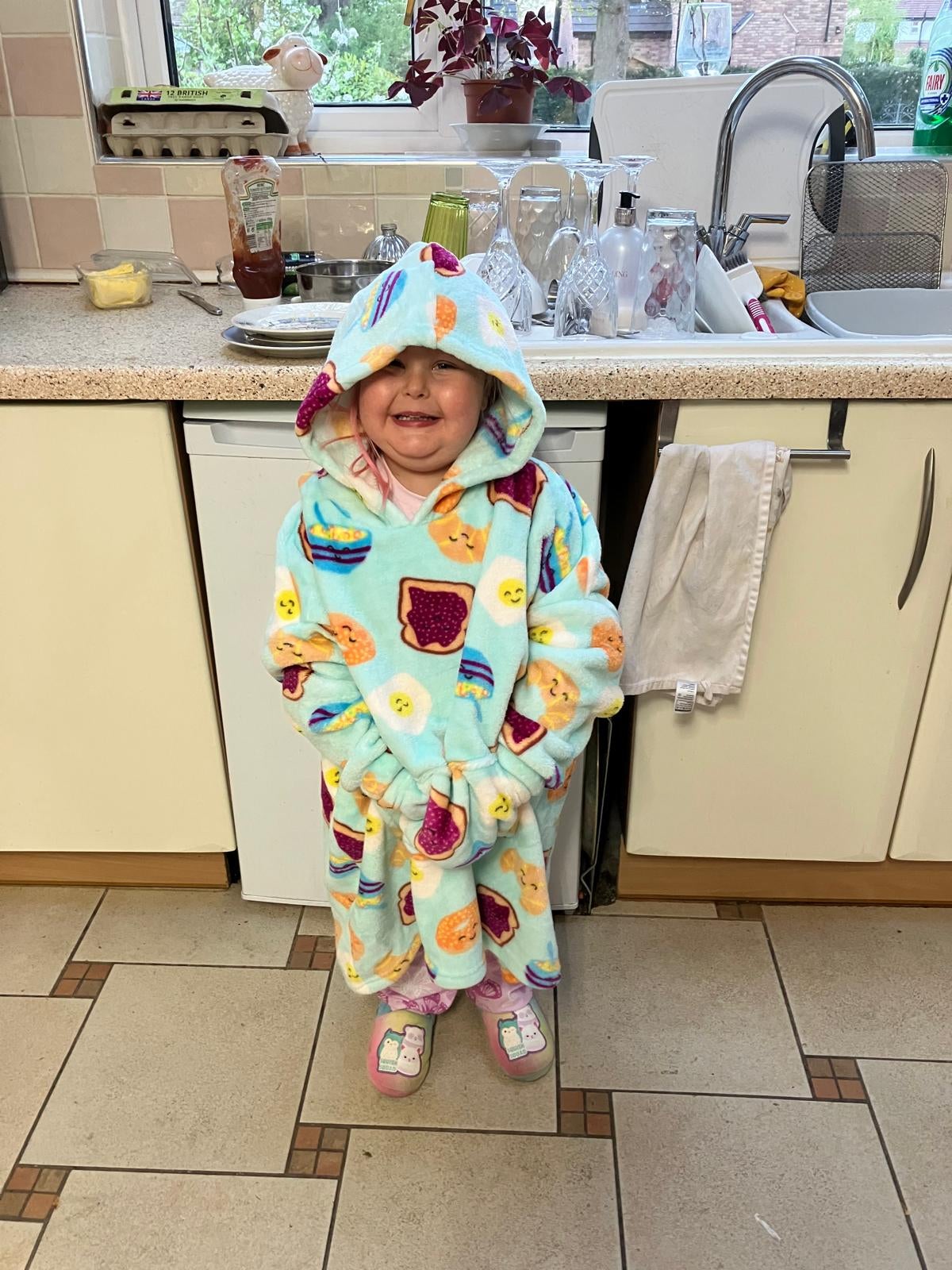ARTICLE AD BOX
A five-year-old girl, described by her parents as a "little firecracker," is battling an ultra-rare brain tumour, defying the odds after receiving a 12-month prognosis.
Rosie Hassall, from Cheshire, began experiencing severe headaches and unusual eye movements in November 2024.
Initially, doctors suspected migraines, a condition that runs in the family. However, Rosie’s symptoms worsened.
Her head pain became so intense that she struggled to cry, laugh, or even sneeze. A subsequent eye test revealed suspected nerve damage, leading to an MRI scan.
Just three days before Christmas, the devastating diagnosis arrived: a kiwi-sized brain tumour. A biopsy confirmed the tumour was cancerous, inoperable, and incredibly aggressive, likely developing within days or weeks.
Rosie's parents, Charlotte and Stefan Hassall, both 36, were told their daughter's prognosis was nine to 12 months.
The rarity of her condition makes the prognosis uncertain, prompting the family to share their story to raise awareness and potentially help others facing similar battles.
They cling to the hope that Rosie will defy the odds and "prove doctors wrong." The family's ordeal began with seemingly innocuous symptoms, highlighting the importance of persistent medical attention when faced with unexplained health concerns.

“Rosie is a fighter, we can see how much she has fought since she’s had this and I’m hoping that she proves them wrong and they can learn off her,” Charlotte told PA Real Life.
“She will be the one that gets through it but you never know and if she’s not, we can help other families down the line with what we’re going through.”
Rosie started experiencing pains in her head and strange eye issues in November 2024.
“We didn’t think anything of it at first but over the next few days, the pain got worse,” Charlotte said.
“We were having tea one night and she said she’d learnt to go cross-eyed but her left eye actually pinged the other way.
“That’s when we realised something had happened.”
Charlotte took Rosie for a doctor’s appointment where it was thought she could be experiencing migraines – a condition which runs on both sides of the family.
She also visited an opticians, Vision Express, but a reason for Rosie’s symptoms could not be found as both her eye and vision were working as normal.
Rosie then started to become “really unwell” and the family took her to Leighton Hospital in Cheshire, where she was prescribed with antibiotics after doctors found white spots on her throat – but Charlotte said she “never really picked up from there”.
“She had 27 episodes of this pain in her head and the doctors were a little bit stumped about what it could be,” she said, adding they were also advised to give Rosie Calpol to help with the pain.
“She was just so poorly, rolling about in pain on the floor, she was really uncomfortable and really quite stressed out.
“She tried to cry but it was so painful, she couldn’t laugh or sneeze because it hurt.”

After seeking a second eye test from Specsavers, where Charlotte said her daughter’s symptoms had become “a lot worse”, it was thought Rosie had suspected nerve damage in her left eye and she was referred to an ophthalmologist.
Rosie underwent “thorough” tests before being sent for an MRI scan at Leighton Hospital on December 19.
The family received the results of the scan on December 22 which revealed a six-centimetre tumour in her brain.
“Everything just stops, everything goes quiet,” Charlotte said.
“I argued with them at the time and said they’re wrong because they’ve only done one scan, they can’t surely be right off one scan.”
The same day, Rosie underwent an MRI scan with contrast – where a dye is injected to make certain tissues and blood vessels show up more clearly – before the family were referred to Alder Hey Children’s Hospital in Liverpool and the presence of the tumour was confirmed.
The family were able to return home for Christmas Day but they needed to be back at the hospital by Boxing Day for Rosie to undergo a biopsy on December 27.
On January 26, the family received Rosie’s official diagnosis which was a “new entity” of a paediatric bithalamic glioma.
Bithalamic gliomas are incredibly rare tumours which make up less than 1 per cent of brain tumour diagnoses, according to Brain Tumour Research.

“We were told from the start it was inoperable because of where the tumour sits, we were told it was a very aggressive tumour,” Stefan said.
Charlotte added: “They said it was literally a matter of days or weeks that it could have happened and grown quite quickly because the symptoms just came on.
“Even though she has a paediatric bithalamic glioma, it’s a new entity, it’s a very rare form of cancer that she’s got – when you Google it, there’s not much you can find.”
Rosie will continue to have chemotherapy treatment, after previously undergoing radiotherapy, and she will have scans every three months to monitor the growth of the tumour.
The family were informed the average prognosis for bithalamic gliomas is between nine and 12 months, but they remain positive as they know Rosie is “a fighter”.
“Rosie is incredible and she’s just tried to carry on as much as she can, she’s such a tough cookie,” Charlotte said.
They hope by sharing Rosie’s journey, others will benefit from further research and information in future.
“If anyone knows anything more about her cancer, we can learn from it and help other families as well,” Charlotte said.
The family have launched a GoFundMe page for support as Charlotte and Stefan have taken time off work to care for Rosie and help her enjoy the days she has away from hospital, raising over £33,000.
To find out more, visit the fundraiser for the family here: gofundme.com/f/support-rosie-and-her-family-through-brain-cancer









 English (US) ·
English (US) ·